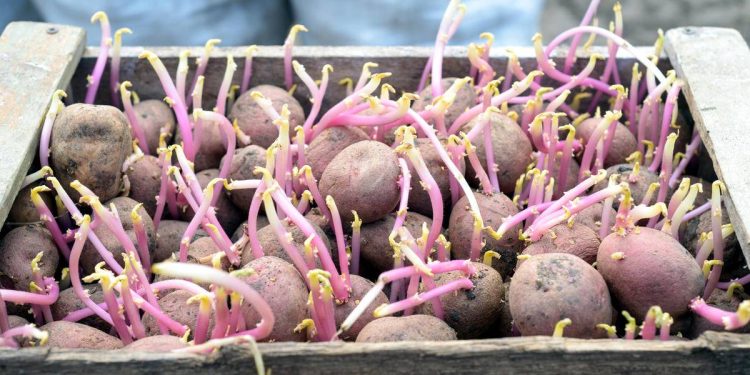#agriculture #potatosprouting #peppermintessentialoil #gibberellicacid #post-harveststorage #naturalsolutions #antimicrobialproperties #farmmanagement #sustainablefarming
Discover the potential of peppermint essential oil as a game-changing solution to address the challenge of potato sprouting induced by gibberellic acid. This article delves into a recent study that examines the impact of commercial peppermint essential oil on potato quality, aiming to prevent sprouting and prolong the preservation period.
In a comprehensive study the impact of peppermint essential oil on potato quality was assessed over a period of 28 days. The study involved treating a batch of potatoes with commercial peppermint essential oil and monitoring their sprouting and overall quality. The results were compared against a control group of untreated potatoes.
The findings of the study revealed promising results. The potatoes treated with peppermint essential oil exhibited significantly reduced sprouting compared to the control group. Moreover, this effect was sustained for an additional 30 days beyond the initial 28-day observation period. The antimicrobial properties of peppermint essential oil were found to play a vital role in inhibiting sprouting and maintaining the quality of potatoes.
According to the researchers, the active components of peppermint essential oil, such as menthol and menthone, act as natural inhibitors of sprouting. These compounds not only suppress the growth of sprouts but also provide a protective barrier against microbial contamination, further enhancing the shelf life of potatoes.
The use of commercial peppermint essential oil shows great potential in combating gibberellic acid-induced potato sprouting. By harnessing the natural properties of peppermint, farmers and agricultural professionals can reduce reliance on synthetic sprout inhibitors, thereby minimizing potential health and environmental concerns. Incorporating peppermint essential oil into post-harvest storage protocols could lead to extended potato shelf life, reduced economic losses, and improved overall potato quality.
A sourse: https://jorgeluisalonso.contently.com/







